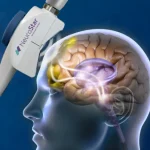Partnering with the right online advertising agency can make or break your digital marketing success. In today’s competitive environment, businesses need more than just ads—they need data-driven strategies, creative execution, and a results-oriented team that understands how to optimize every dollar spent. The right agency doesn’t just manage campaigns; it acts as a growth partner, helping you scale efficiently while maximizing your return on investment (ROI).
1. Set Clear Business and Marketing Goals
Before you even begin searching for an agency, you need clarity on your objectives. Are you looking to increase website traffic, generate leads, improve brand awareness, or boost direct sales? Setting specific, measurable goals allows your agency to align its strategies with your business needs.
For instance, an e-commerce brand might aim for a 30% increase in conversions during the holiday season, while a B2B company could focus on reducing cost per lead by 20%. Having these benchmarks upfront helps your future partner design campaigns that deliver measurable impact.
Execution Steps:
- Identify 3–5 measurable goals that directly support your business growth.
- Define key performance indicators (KPIs) such as conversion rate, click-through rate, or return on ad spend (ROAS).
- Use these metrics to assess agency performance and accountability throughout the partnership.
2. Evaluate Their Expertise in Paid Advertising
A reputable agency should have deep expertise in various online ad platforms—Google Ads, Meta (Facebook/Instagram) Ads, LinkedIn Ads, and YouTube. Their knowledge of ad targeting, bidding strategies, and creative optimization will directly affect your ROI.
Top agencies often specialize in PPC services, which include managing pay-per-click campaigns across multiple channels. For example, an experienced PPC team might use a combination of Google Search Ads for high-intent traffic and retargeting campaigns on Facebook to capture users who visited your website but didn’t convert.
Execution Steps:
- Ask potential agencies to share examples of their paid ad case studies and performance reports.
- Evaluate whether they understand both the creative and analytical aspects of PPC campaigns.
- Choose an agency that focuses on continual optimization—not just campaign setup.
3. Review Their Data-Driven Approach
Modern online advertising is not about intuition; it’s about leveraging data for smarter decisions. The best agencies use analytics tools, conversion tracking, and performance dashboards to measure every action and adjust campaigns accordingly.
For instance, a strong data-driven agency will analyze metrics like cost per acquisition (CPA), lifetime value (LTV), and ad frequency to determine what’s truly working. They’ll use this data to reallocate budget toward high-performing campaigns and cut underperforming ones.
Execution Steps:
- Confirm that your agency uses platforms such as Google Analytics, HubSpot, or Data Studio for transparent reporting.
- Set up real-time dashboards to track ROI metrics.
- Schedule monthly review meetings to discuss insights and next steps.
4. Assess Their Creative Strategy and Ad Design
A high-performing ad campaign relies on more than targeting—it depends on compelling creative that captures attention and drives action. A strong agency will blend creativity with strategy to craft visuals, copy, and videos that resonate with your audience.
For example, a travel company might find success using emotion-driven video ads showcasing experiences, while a tech company could use carousel ads highlighting product features. The key is to create ad content that not only attracts clicks but converts interest into measurable results.
Execution Steps:
- Review the agency’s portfolio to evaluate the quality and diversity of their creatives.
- Ask how they approach A/B testing for different ad formats and messages.
- Ensure the agency adapts creative assets based on performance insights—not assumptions.
5. Look for Multi-Channel Integration
Your customers don’t live on one platform, and neither should your campaigns. Effective agencies run integrated campaigns across multiple channels—combining search, display, social, and video ads for greater impact.
For instance, a digital product launch might begin with Google Search Ads to capture intent-driven traffic, followed by YouTube pre-roll ads for brand awareness and retargeting ads on Facebook to drive conversions.
Execution Steps:
- Ask how the agency coordinates campaigns across platforms to maintain consistent messaging.
- Ensure they can track performance across channels using UTM tags and multi-touch attribution models.
- Review how they plan to reallocate budgets dynamically based on real-time results.
6. Prioritize Transparency and Communication
The best agency partnerships thrive on trust and transparency. Your agency should provide open communication, frequent updates, and clear reporting on campaign performance. If you find yourself constantly asking for updates, that’s a red flag.
For example, reliable agencies offer dedicated account managers, provide weekly performance summaries, and hold monthly strategy sessions. They’ll share both wins and challenges, keeping you informed and confident in your investment.
Execution Steps:
- Establish clear communication channels from day one (e.g., Slack, Trello, or Asana).
- Agree on the frequency and format of reports.
- Expect full visibility into ad spend, performance metrics, and campaign changes.
7. Ensure They Emphasize Continuous Optimization
Online advertising is dynamic. What works today may not work tomorrow. Top agencies understand this and commit to continuous testing, learning, and refining campaigns.
For example, an agency might test multiple ad headlines to find the one that yields the highest CTR or adjust bidding strategies weekly to maintain an optimal cost per conversion. This iterative process ensures that your marketing dollars are always performing at their best.
Execution Steps:
- Discuss how the agency conducts A/B testing and optimization cycles.
- Ask for examples of campaigns that improved over time due to iterative testing.
- Choose partners who treat optimization as an ongoing process—not a one-time task.
8. Align on Long-Term Growth Strategy
While short-term results are important, a great partnership looks beyond immediate returns. The right agency will help you build sustainable marketing frameworks—scalable campaigns, audience data, and creative assets that deliver value over time.
For instance, an agency might start with conversion-focused campaigns but later expand into remarketing, email automation, and content strategy to sustain customer engagement.
Execution Steps:
- Ask if the agency provides quarterly or annual strategy sessions.
- Evaluate whether their long-term vision aligns with your business goals.
- Look for partners who focus on retention and scalability, not just acquisition.
Conclusion
Maximizing ROI with the right online advertising agency is about more than choosing a vendor—it’s about forming a data-driven, transparent, and goal-oriented partnership. From mastering PPC campaigns to integrating multi-channel strategies and ongoing optimization, the right agency becomes a true extension of your marketing team. By selecting a partner that prioritizes strategy, analytics, and collaboration, you’ll position your business for sustainable growth and consistent returns in the ever-evolving digital landscape.






